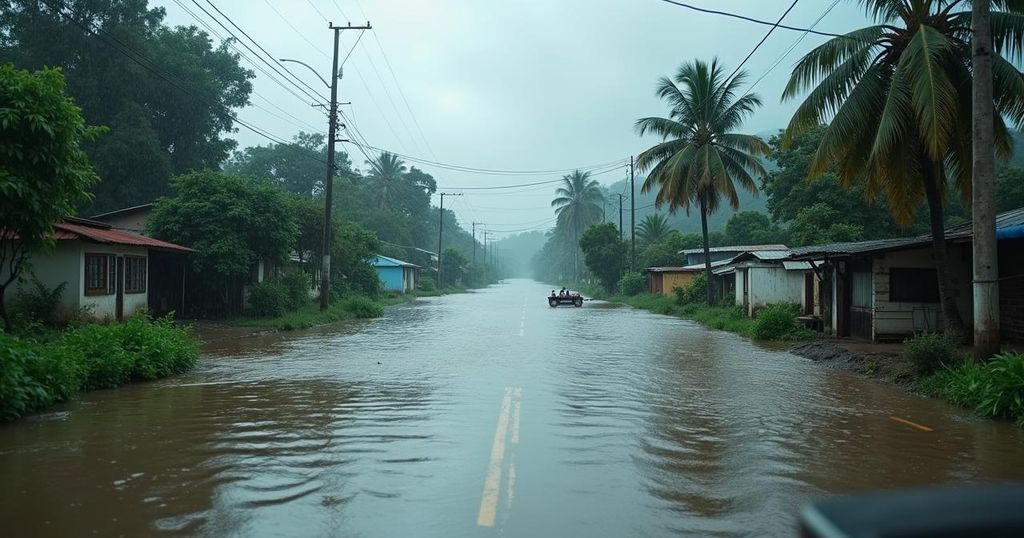Devastating Floods Wreak Havoc in West and Central Africa

Recent torrential rains in West and Central Africa have caused catastrophic floods, affecting millions and resulting in significant loss of life. Over 400,000 people in northeastern Nigeria are among those impacted. Key infrastructure has been devastated, and rescue efforts continue amid dire humanitarian needs.
Torrential rains have wrought unprecedented devastation across West and Central Africa, with thousands displaced and hundreds perishing as severe flooding ravages the landscape. The United Nations has reported that in northeastern Nigeria alone, over 400,000 individuals have been affected, and the situation is dire. Images from the region show entire neighborhoods submerged under water, with harrowing scenes of chaos and despair, including inmates fleeing from a main prison as rising waters breached its walls. The floods have exhibited a devastating toll in multiple countries, resulting in the deaths of more than 1,000 individuals this year. Affected nations, including Chad, Nigeria, Mali, and Niger, are grappling with worsening humanitarian crises exacerbated by the floods, with approximately four million people adversely impacted—this represents a threefold increase compared to the previous year. In Maiduguri, the capital of Borno State, residents have experienced catastrophic conditions, with over 600,000 people displaced. Local infrastructure has severely deteriorated, leading to the collapse of critical facilities. For instance, floods have decimated two major dams along Lake Alau, unleashing a staggering 540 billion liters of water onto the city. Governor Babagana Zulum has urgently sought international assistance, stating, “Our resources are stretched to the limit, and we cannot do this alone.” Meanwhile, humanitarian efforts by organizations such as the World Food Program are ongoing, providing essential support to those in need.
The floods in West and Central Africa are attributed to a combination of climatic change and extreme weather events. Areas in sub-Saharan Africa are particularly susceptible to these conditions despite contributing minimally to global greenhouse gas emissions. The World Meteorological Organization has identified a need for approximately $30-50 billion annually over the next decade for adaptation measures against extreme weather in Africa, which will inevitably affect millions.
In conclusion, the overwhelming floods across West and Central Africa highlight the urgent need for improved disaster preparedness and climate change adaptation strategies. As local and international organizations strive to mitigate the effects of this humanitarian crisis, solidarity and support are crucial in ensuring that displaced individuals receive the assistance they desperately need.
Original Source: apnews.com







